’Tis Dining Month, the tastiest time of year! This means we’re dishing up fun and fascinating food content throughout October. Dig in, Milwaukee!
In honor of Dining Month, we're resharing this 2018 story of a classic Milwaukee restaurant. Enjoy!
There are family businesses and there are family businesses ... like Jack’s Pandl’s Whitefish Bay Inn, where Lake Drive bends to the west, 1319 E. Henry Clay St.
Though the restaurant and its building even pre-date the 1915 purchase of it by Austro-Hungarian immigrant Johann "Jack" Pandl, more than 100 years later, direct descendants still run the place, and yet another generation is being groomed to carry it into the future.
"Everybody worked here," says John Pandl, who has owned and operated the restaurant since about 1992, along with his wife, Laura. "(Her sons) eventually took it over when Ma got a little too old."
Ma was Jack’s widow, Anna, who passed the business on to her sons, Jack and George. Jack was John’s dad.
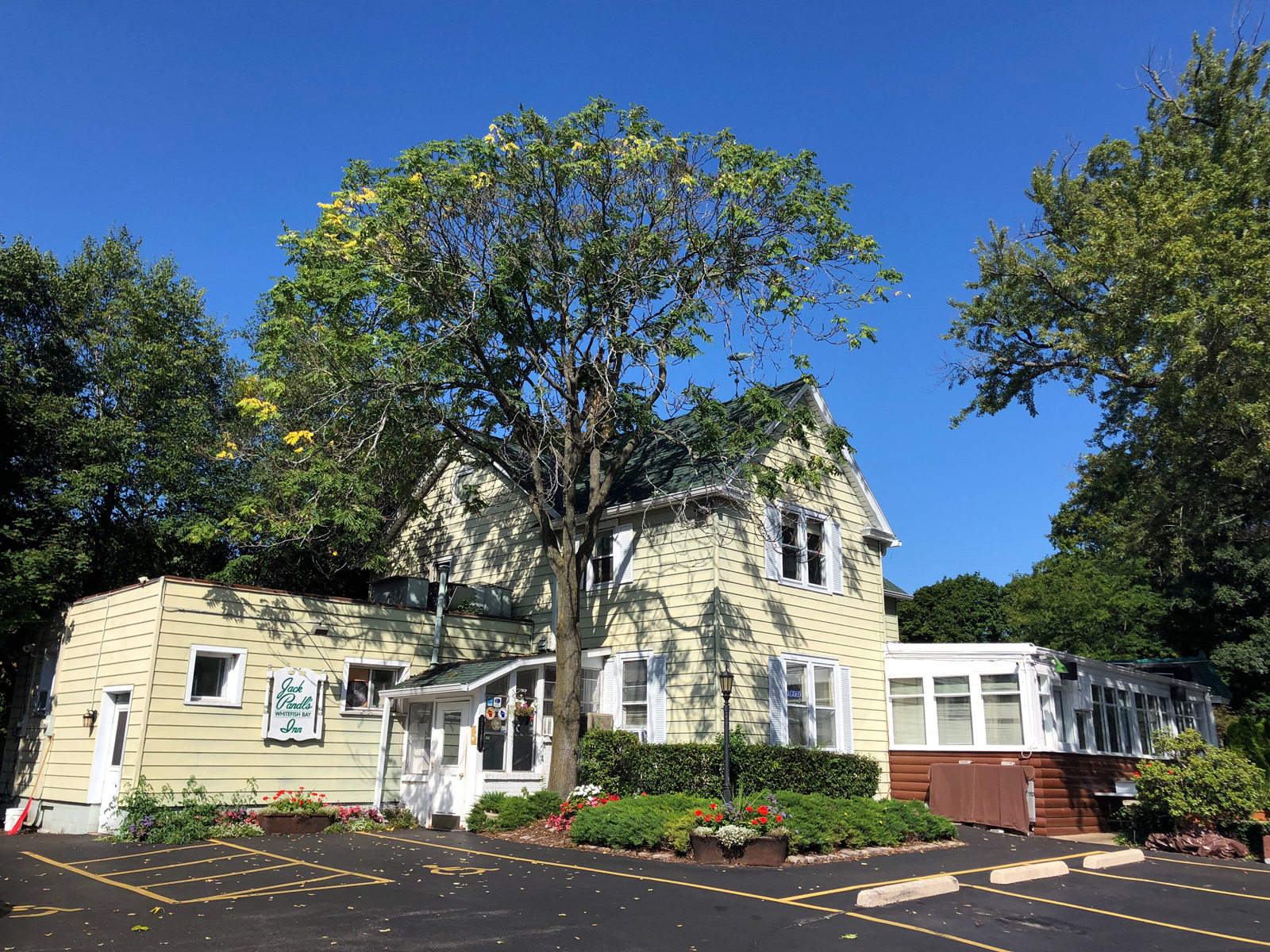
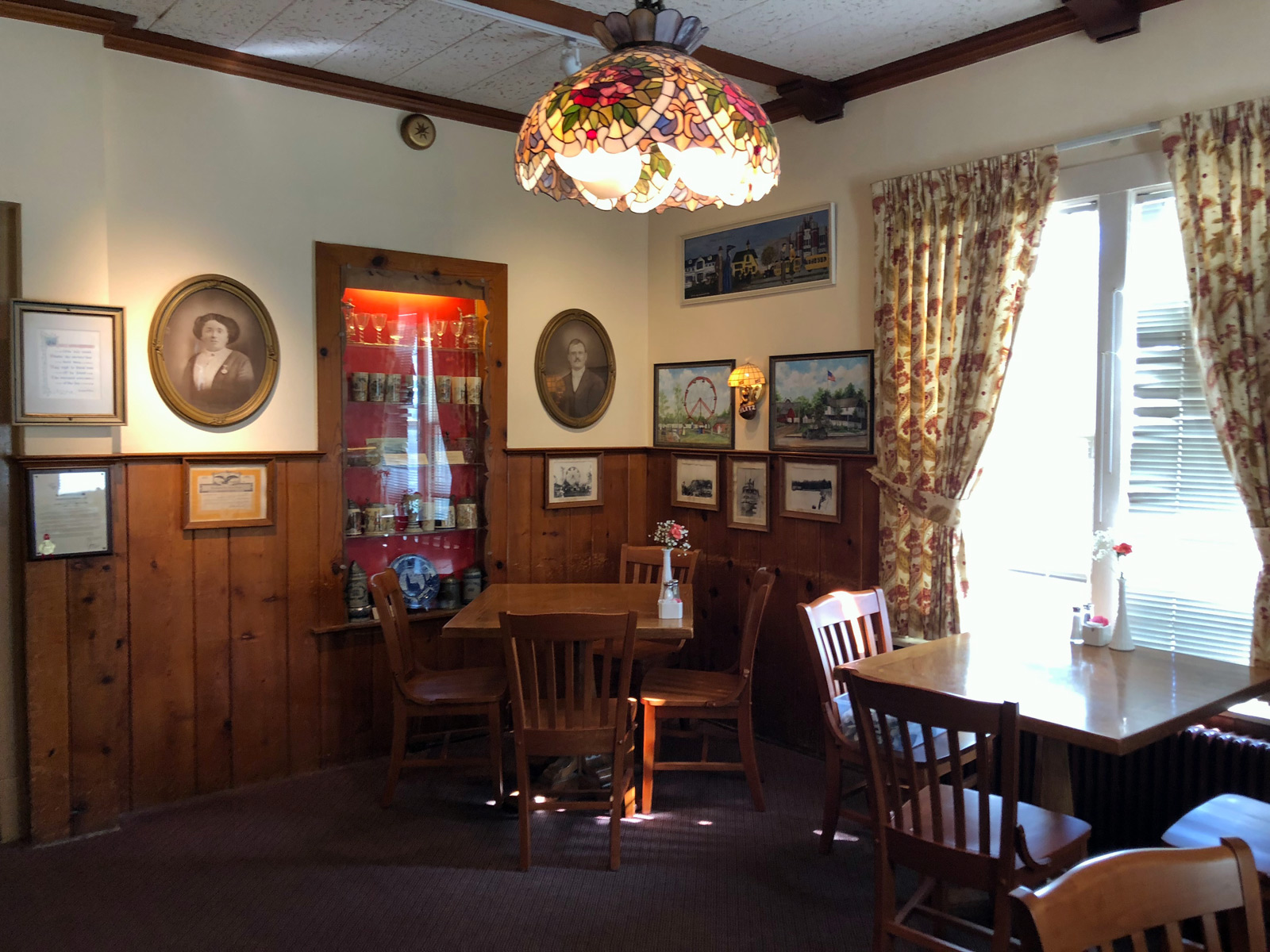
"I'm 60 in one week," Pandl says as we sit in the small dining room dubbed The Heritage Room, surrounded by images of his grandparents two days before he takes the entire family to Austria in hopes of meeting some old world Pandls.
"I'm not going anywhere for a while. But obviously at some point I would like to retire and step back. I still work in the kitchen, because I love it. It's a lot of work, it's a lot of organization. I've done it since I was 8 years old."
That’s where Pandl’s son Ryan comes in.
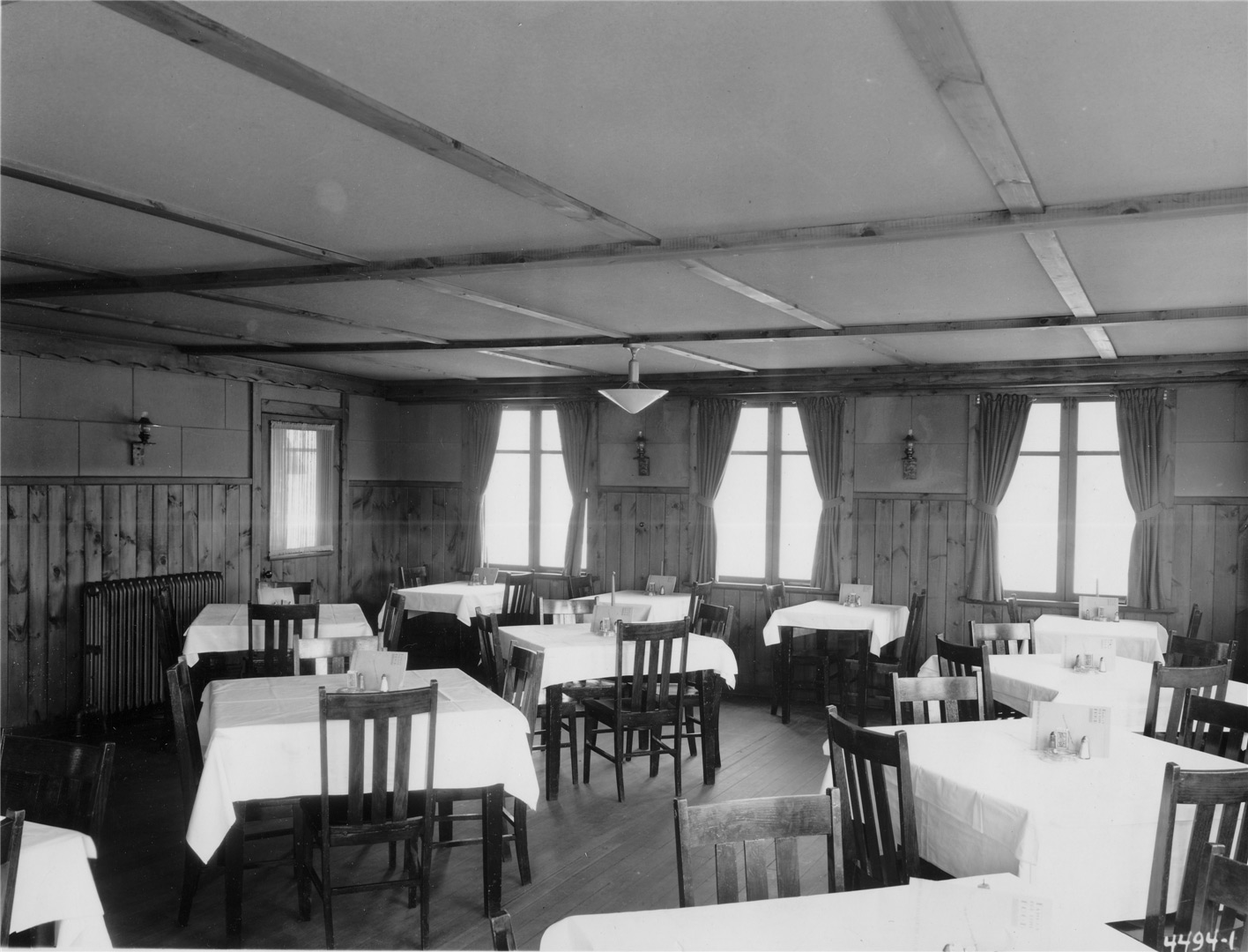
(PHOTO: Courtesy of Thomas Fehring)
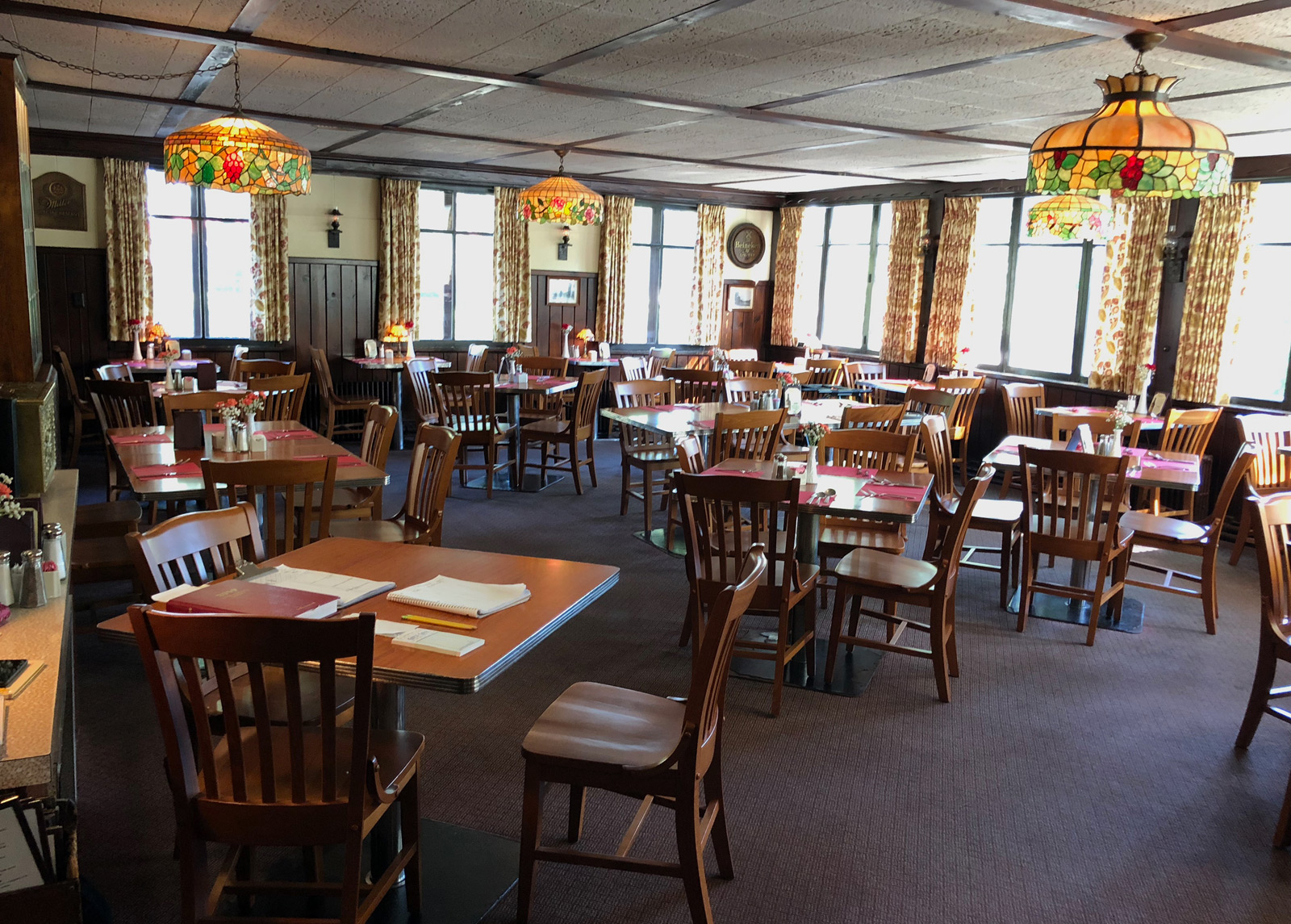
"I started when I was about 8, too," he says. "I've pretty much always wanted to do it. I went to a law school for a year, so I almost was going to be a lawyer if decided not to do this. But then after that year of law school, I was like, I don't want to do that. I want to go back into the restaurant."
That should be reassuring to the Village of Whitefish Bay (and all of the Milwaukee area, in fact), because the restaurant is not only an official Milwaukee County landmark, it is one of the most recognizable and beloved landmarks in Whitefish Bay.
But you might be surprised to learn it wasn’t always that way.
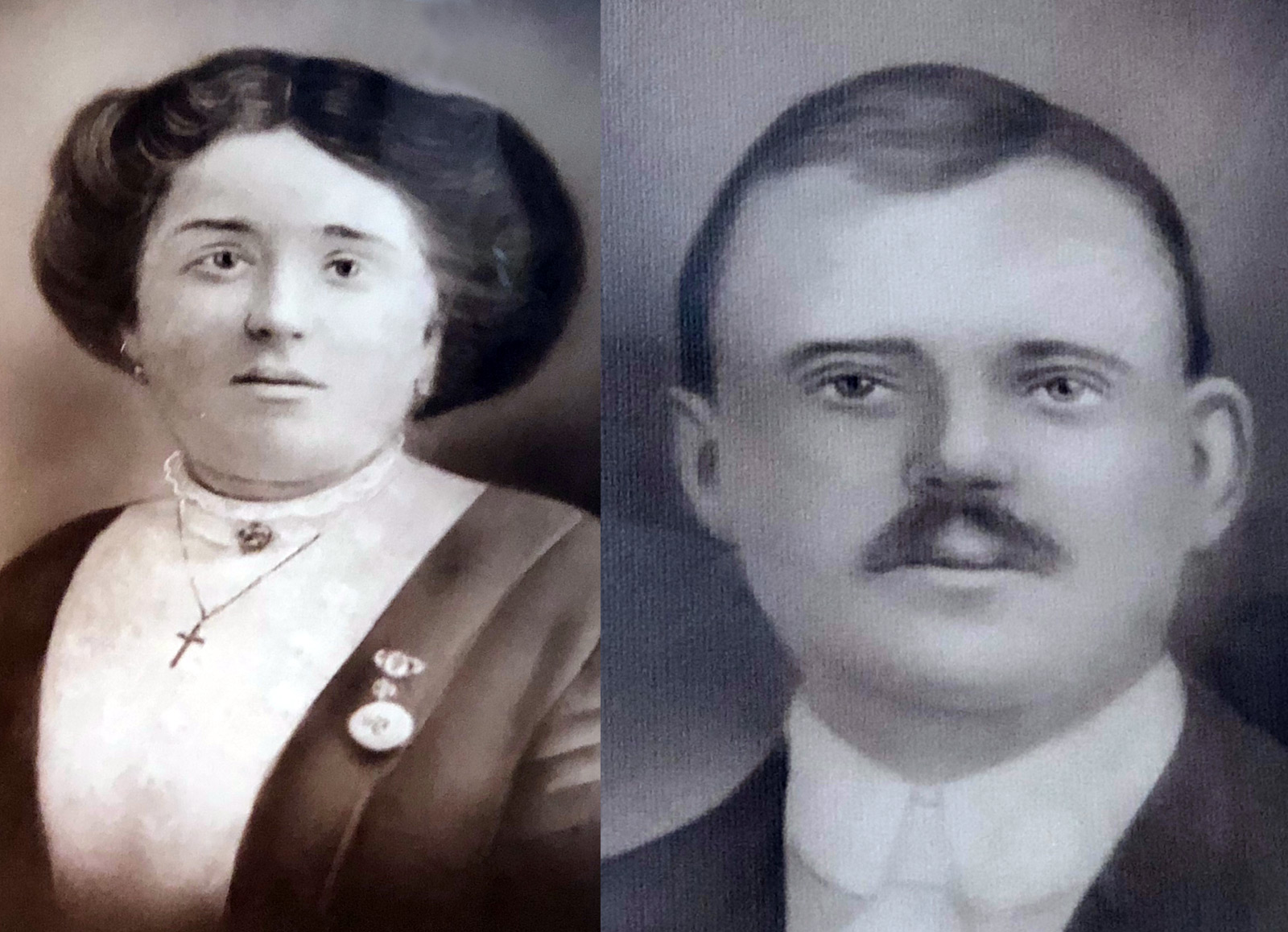
Anna and Johann Pandl. (PHOTOS: Courtesy of Jack Pandl's)
A little history
Johann Pandl was born on Aug. 30, 1881 and immigrated from Neustift (called Ujtelep in Hungarian) to the United States, landing in New York City where he passed through Ellis Island on May 10, 1906. Eleven days behind him was his younger sister Johanna, who disembarked in America on May 21. Both came to Milwaukee.
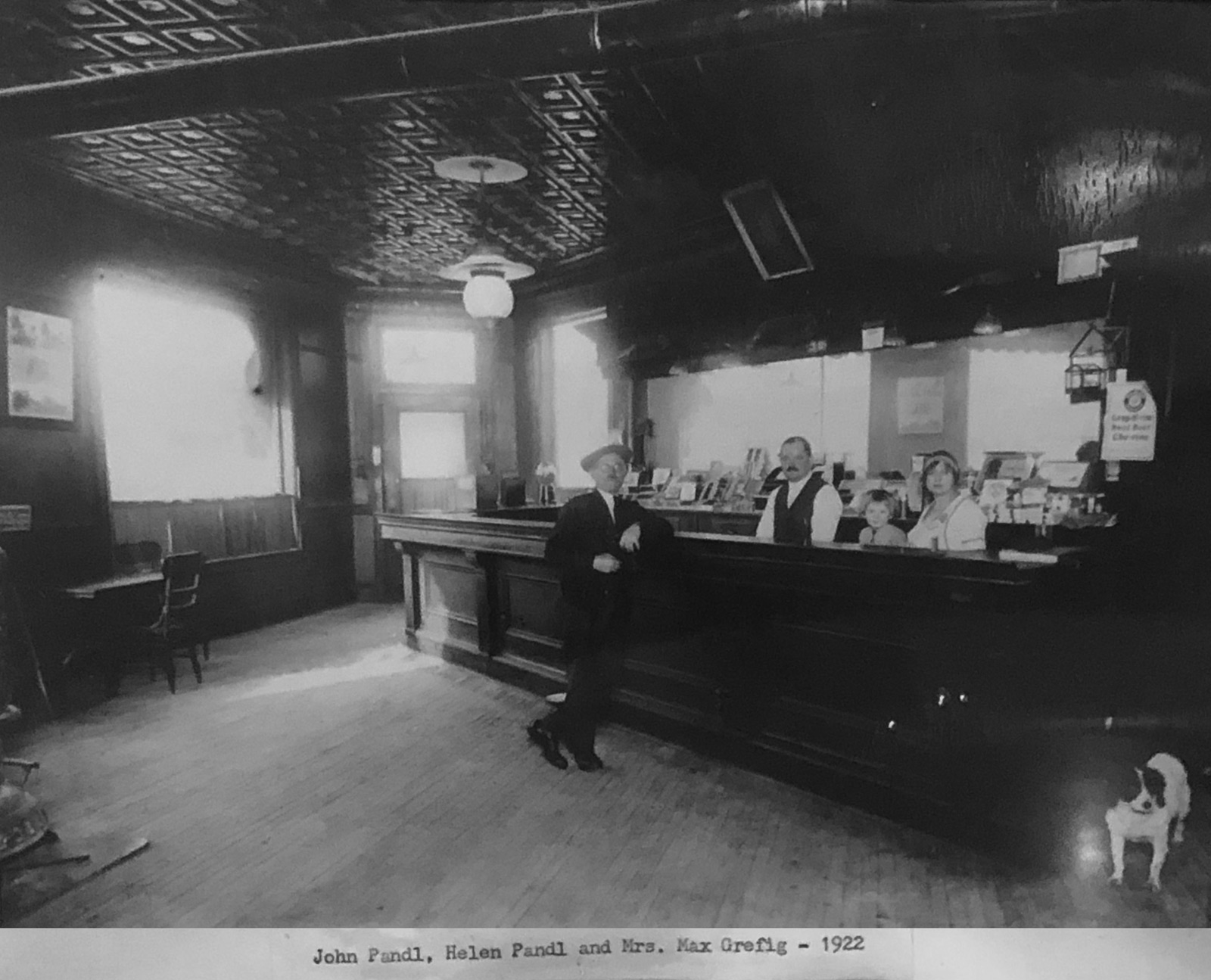
(PHOTO: Courtesy of Jack Pandl's)
The story goes that Pandl, working as a hotel waiter, met a cook there named Anna Baumann, 10 years his junior, who had come to America in 1907.
It’s possible – perhaps even likely – that they met and were working at the Hotel Bismarck, on the west side of 3rd Street, between Juneau and McKinley.
That hotel was operated by Max Grefig, a 1905 immigrant from Germany’s Rhineland, who landed at his uncle John Ziehl’s Bismarck Hotel, which he eventually took over. In 1910 Grefig married Johanna Pandl and when Jack and Anna married the following year, Jack’s address was at the Bismarck.
But Pandl was also tied to another nearby hotel.
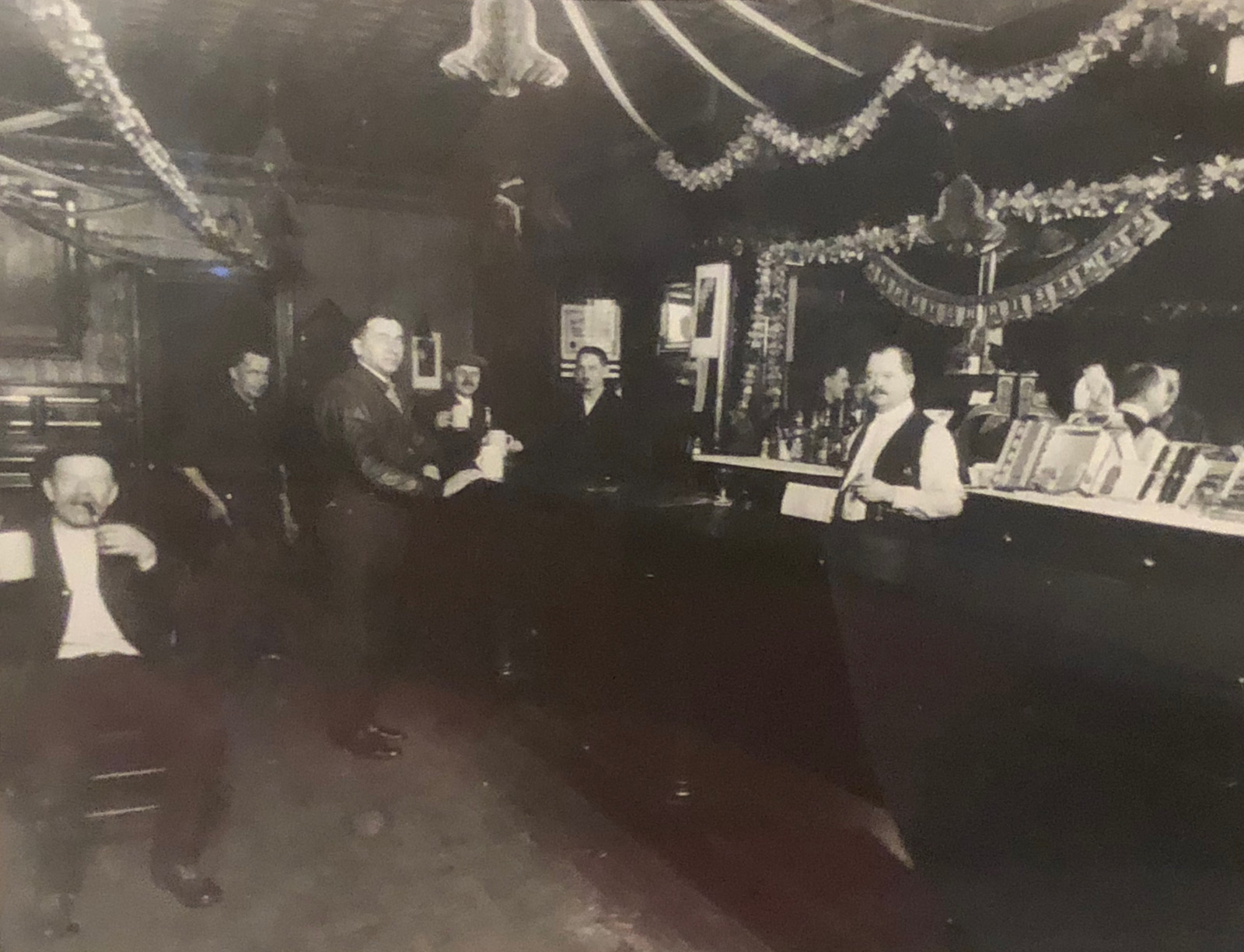
(PHOTO: Courtesy of Thomas Fehring)
By 1910, he was behind the bar at the Auditorium Hotel (at right in the photo above), around the corner on the west side of 4th Street, between Highland and Juneau. Soon, he owned the place.
That experience surely proved useful when he found an opportunity up in Whitefish Bay, where the Pabst Resort on the Lake Michigan shore had turned the sleepy rural village into a bustling metropolis of fun-seekers on weekends and in summer since the 1880s.
Pandl purchased the Whitefish Bay Inn in 1915 from George Bentley, who had opened the combination tavern, restaurant and grocery store in 1900, right in the heart of the booming Pabst era. However, that same year, Pabst closed the resort, which surely put a dent in Pandl’s business, though it got a boost from its location near a National Guard armory.
"While other businesses were abandoning the area with the closing of Pabst Resort in 1915, the Pandls stayed put and made their restaurant a great success, a popular must-stop for visitors to the North Shore for over 100 years," wrote Jefferson J. Aikin and Thomas H. Fehring in their book, "Historic Whitefish Bay.
"It was often visited by the officers and soldiers who lived and drilled at the WFB National Guard Armory across the street. Today, Pandl’s is the oldest family-owned and continuously operated business in the same location in the state of Wisconsin."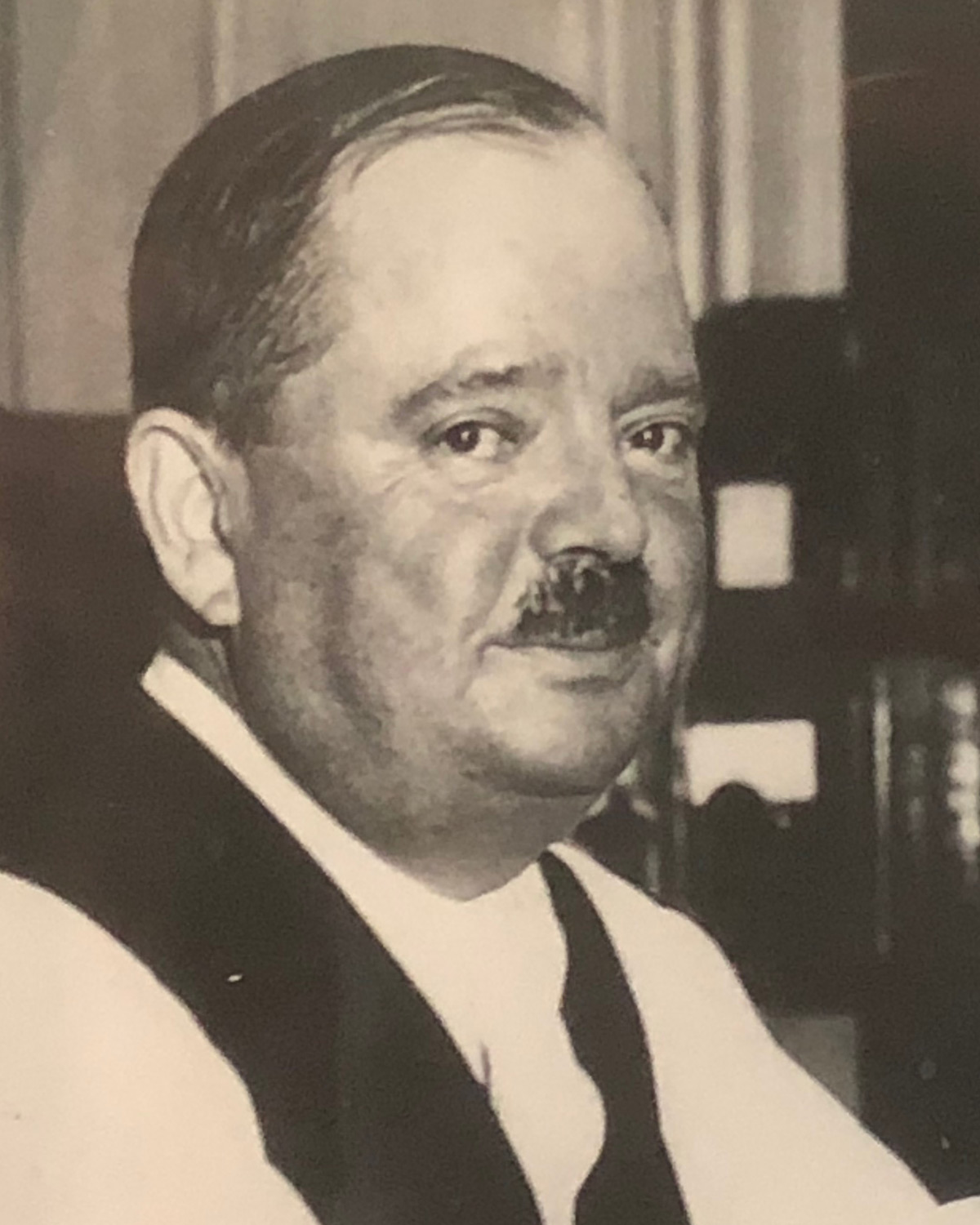
Interestingly, Pandl (at right) didn’t appear to sever ties with Downtown Milwaukee. In 1916 he appears to have still owned the Auditorium and later in the 1910s, he signed on as a bondsman for taverns opened by Grefig on Water Street and at the Bismarck (before Grefig opened the Okauchee Hotel with Sam Trimmel, an early associated of restaurateur Charles Mader).
Pandl also was an investor – and apparently an active one – in the Sonnenberg Sausage Company, 92 Michigan St., in 1920.
But he was also busy in Whitefish Bay, where he ran the tavern and, after the arrival of Prohibition, a restaurant as well as a service station on the corner lot that now hosts the restaurant’s welcoming patio.
Welcoming, however, is not a word that describes the village officials’ attitude toward the Whitefish Bay Inn, which Pandl was running in partnership with fellow Hungarian immigrant John Schuch.
In autumn 1922, the town’s trustees – led by Pabst’s Herman Uihlein, who was village president – attempted to shut the place down.
According to one newspaper report, "Uihlein testified that the ‘chicken dinner’ inn operated by John Pandl and John Schuh on Lake Drive is not wanted in Whitefish Bay because it is within a residence zone. Trustees last August rejected Pandl’s application to run soft drink establishment. The village then brought suit in circuit court seeking to oust the inn on grounds that the two men operate a nuisance and are violating the zoning ordinance."
Pandl and Schuch argued in a countersuit, "that Col. Gustave Pabst, wealthy brewer, and Mr. Uihlein, owners of Lake Drive real estate, have conspired to oust the inn to enhance the value of their own property. Mr. Uihlein, it is alleged, sought the office of village president with the sole intention of putting the inn out of business."
Uihlein, of course, denied it all, saying his only objection to the inn was that it was causing a traffic menace in a residential area and was in violation of zoning law – an ordinance he denied having any hand in creating.
But the battle seemed to end in a stalemate and in January 1923, the case was dismissed by a judge.
But Pandl might’ve needed a break.
He inked a deal leasing the inn to Schuch – who had also operated the Donges Bay Pine Grove Resort for more than a dozen years by then – for five years and in March went back Downtown to open a real estate and insurance agency with Frank Heffner and W. Warnken, taking offices in the Caswell Block on Plankinton and Wisconsin Avenues.
A year later, the Pandls packed up their three kids and left New York on May 7, 1924 on a long trip back home to Austria and Hungary, also visiting France, Holland, Italy, Switzerland, Germany and Yugoslavia on a journey that didn’t land them back on American soil until Nov. 2.
Though it’s unclear what became of the Pandl’s in 1925-26, by 1927, the family was back in Whitefish Bay running the inn.
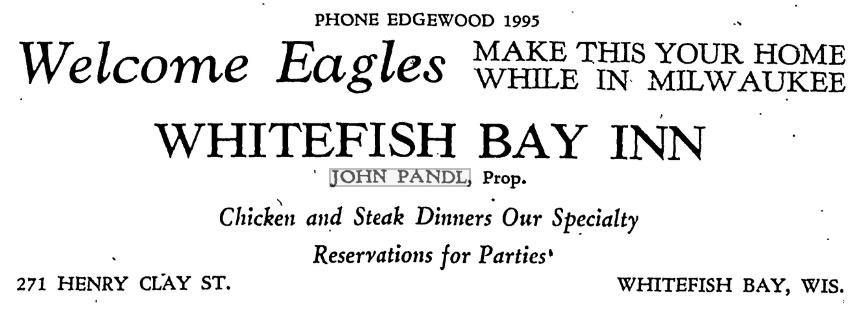
Advertisements from 1927 (above) and 1935 (below).
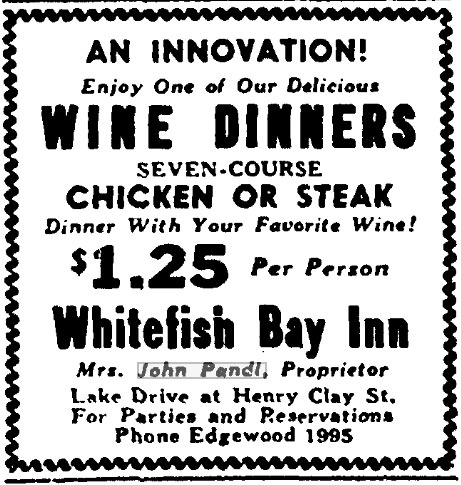
In 1932, Pandl hired contractor Val Schramka to design and build an English-style residence at 5158 N. Ardmore Ave. (Schramka had designed and was erecting a similar one next door, too, at 5152).
Though the country was still, technically speaking, dry – Repeal arrived in 1933 – the Whitefish Bay Inn, like many other places, wasn’t always, and around the beginning of November 1932, Jack unwittingly sold beer from a half-barrel to undercover "dry agents."
Just days later, Pandl tumbled down the stairs at the inn and suffered a concussion. Running to his aid was his nephew Emmerich Pandl, who had heard the crash. But at age 51, on Nov. 9, Pandl died at St. Mary’s Hospital, leaving Anna with five children – George was just 4 and young Jack only 2 – and the business to run.
Then, reported the Sentinel on Nov. 24, exactly two weeks after Pandl’s death, those dry agents returned and arrested Anna.
According to Aikin and Fehring, "Anna’s younger children, returning home, noticed a police vehicle outside the restaurant, and asked, ‘What’s the paddy wagon doing here?’ Their older sibling said, ‘They’re taking mom to jail.’"
But Anna (pictured below) was freed soon after.
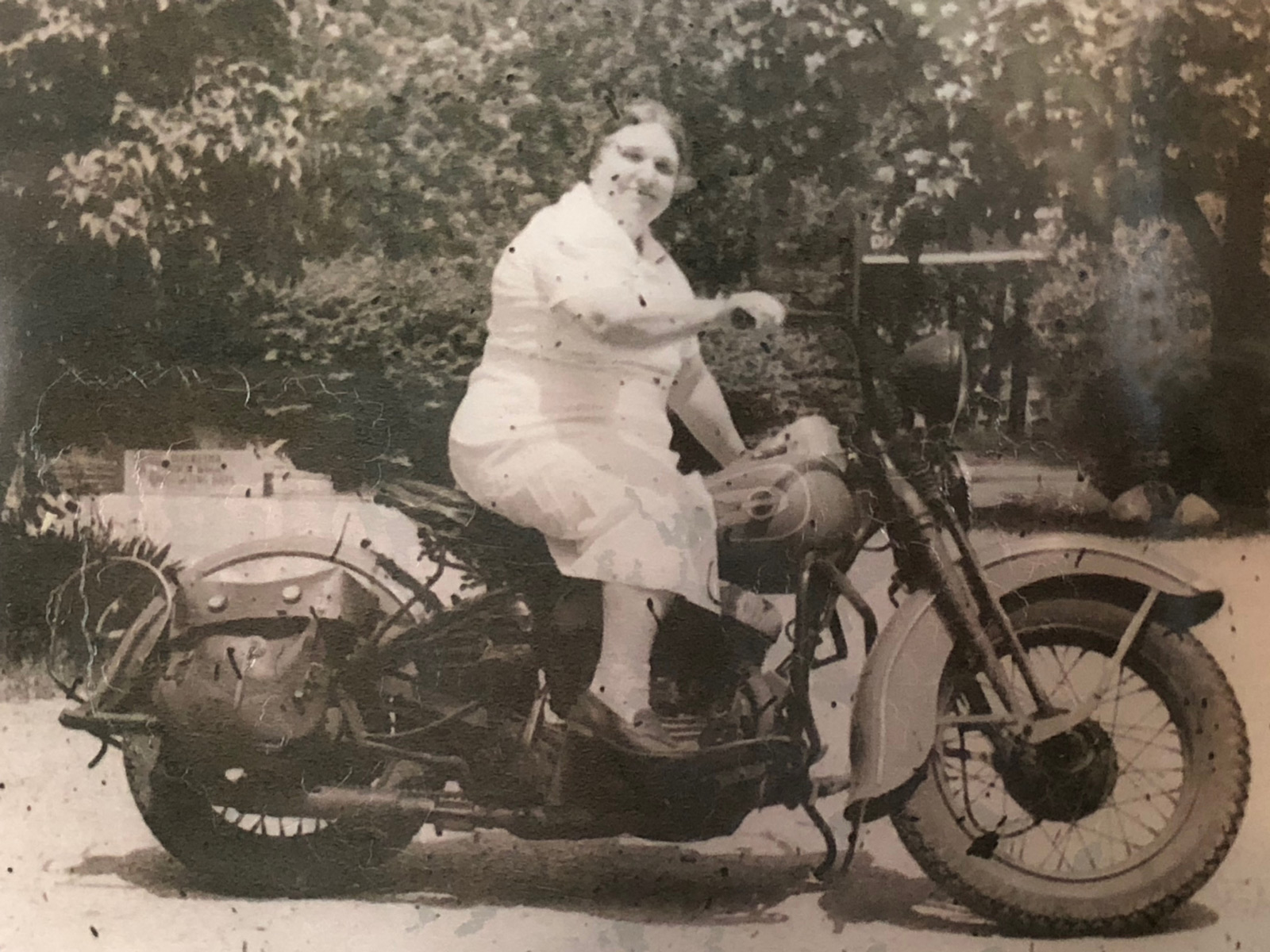
(PHOTO: Courtesy of Jack Pandl's)
On Nov. 26, the Sentinel wrote, "Evidence disclosed was that dry agents bought liquor from John Pandl a few days before his death and there was no evidence against the widow. The agents themselves recommended dismissal."
But now the village trustees were back on the rampage, using that zoning ordinance to again attempt to shut down the business.
Now it was Anna Pandl’s turn to fight.
According to "Historic Whitefish Bay," she sought help from the nearby armory’s Col. Phillip C. Westphal, who lived in a farmhouse across from Pandl’s and he stepped in, talking to one-time nemesis Herman Uihlein.
Uihlein interceded with the trustees, who admitted that the business had been well-run and that since there was no reason to believe that wouldn’t continue, on Dec. 4, 1933, the day before prohibition was officially repealed, the village allowed Pandl’s to remain open for 10 years.
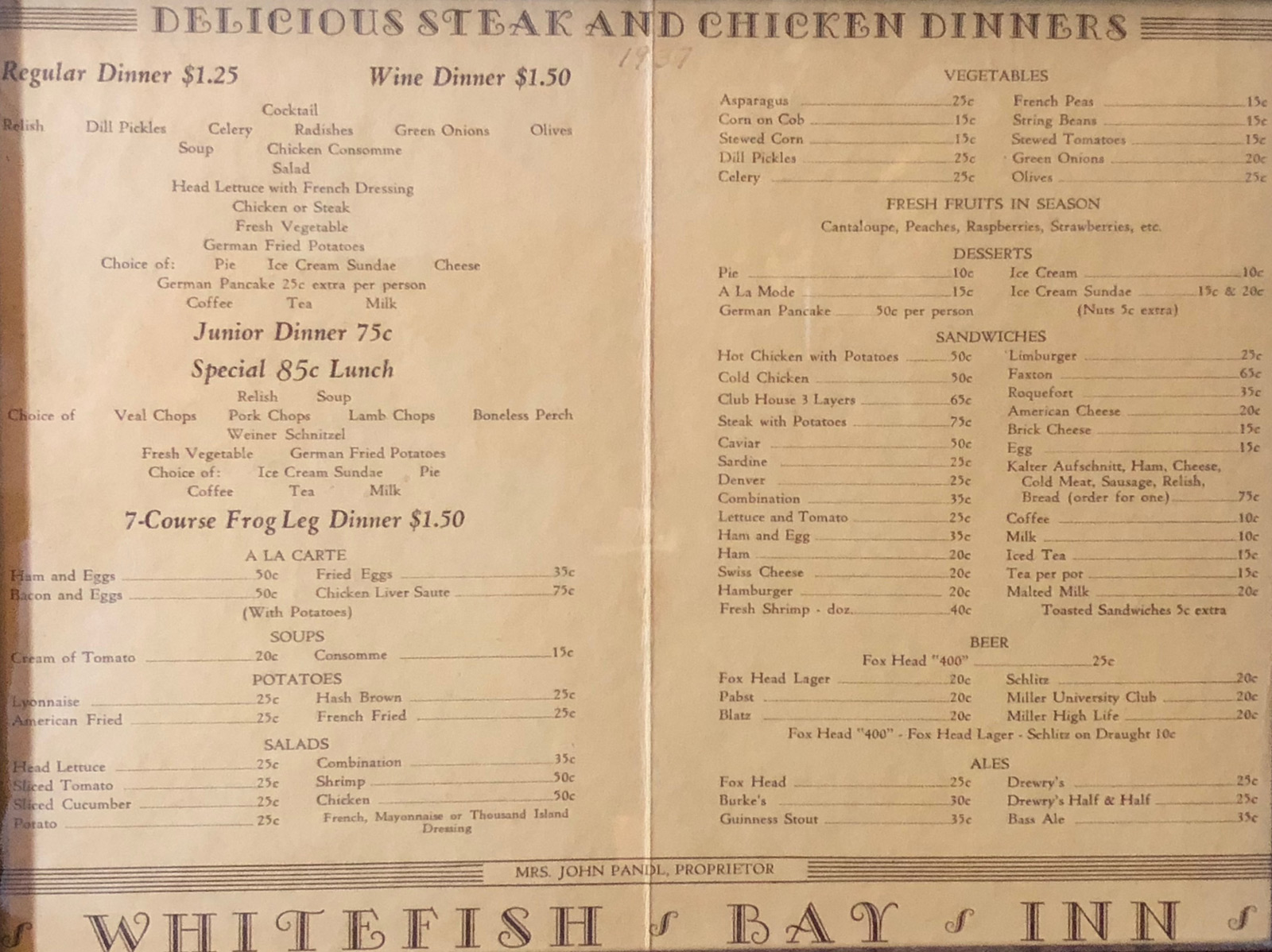
A 1937 menu. (PHOTO: Courtesy of Jack Pandl's)
The village also elected to make Pandl’s the only place in town that could sell alcohol in Whitefish Bay upon Repeal.
"That remained village policy for the next 50 years," wrote Aiken and Fehring.
By the time the decade had passed, in 1942, Whitefish Bay had changed its mind about Pandl’s and decided it was an asset to the community and would be allowed to stay, on a year-by-year basis, assuming management remained the same.
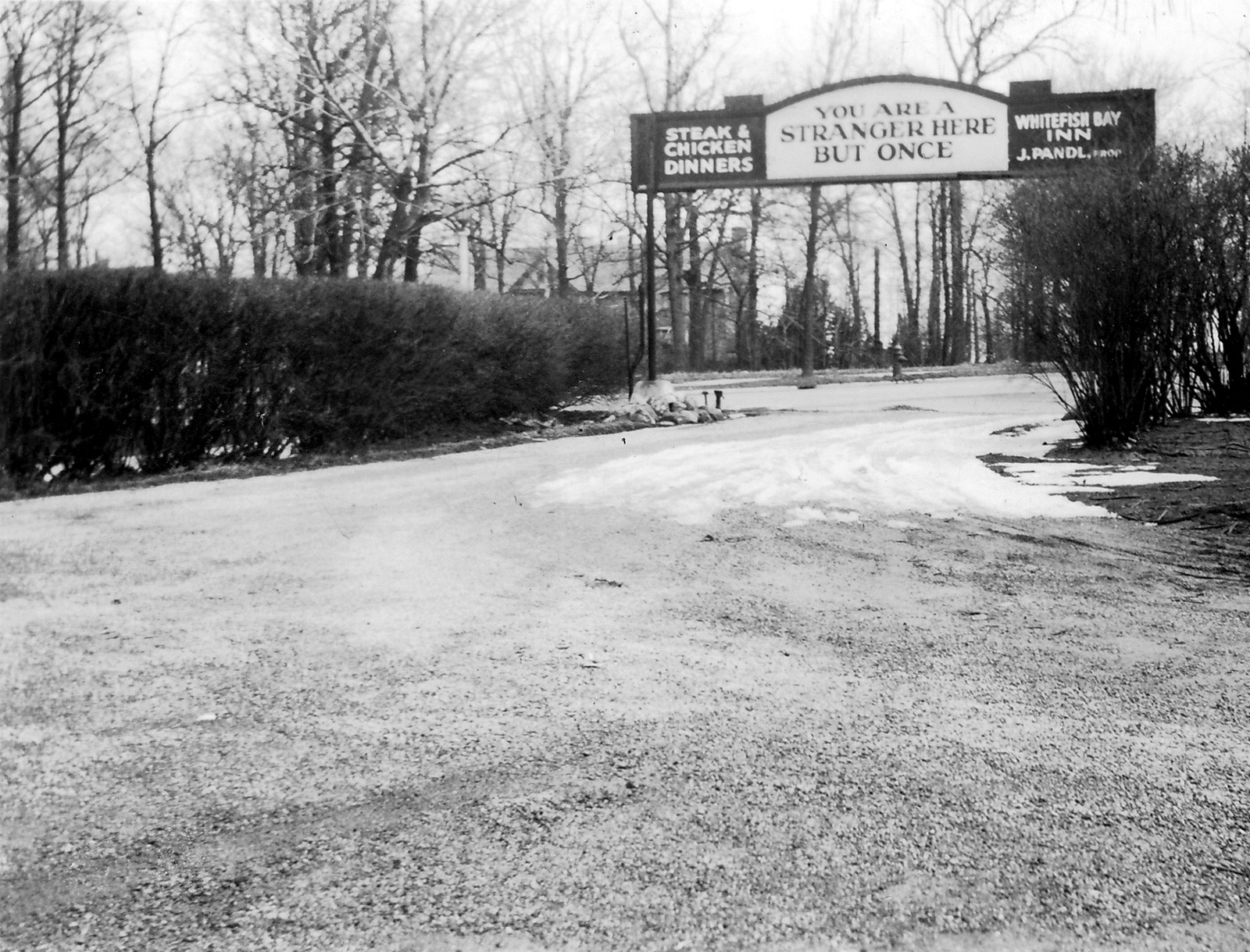
Circa 1940s. (PHOTO: Courtesy of Thomas Fehring)
Anna worked hard at community relations. In addition to running a good business, she regularly baked pies to be delivered to neighbors.
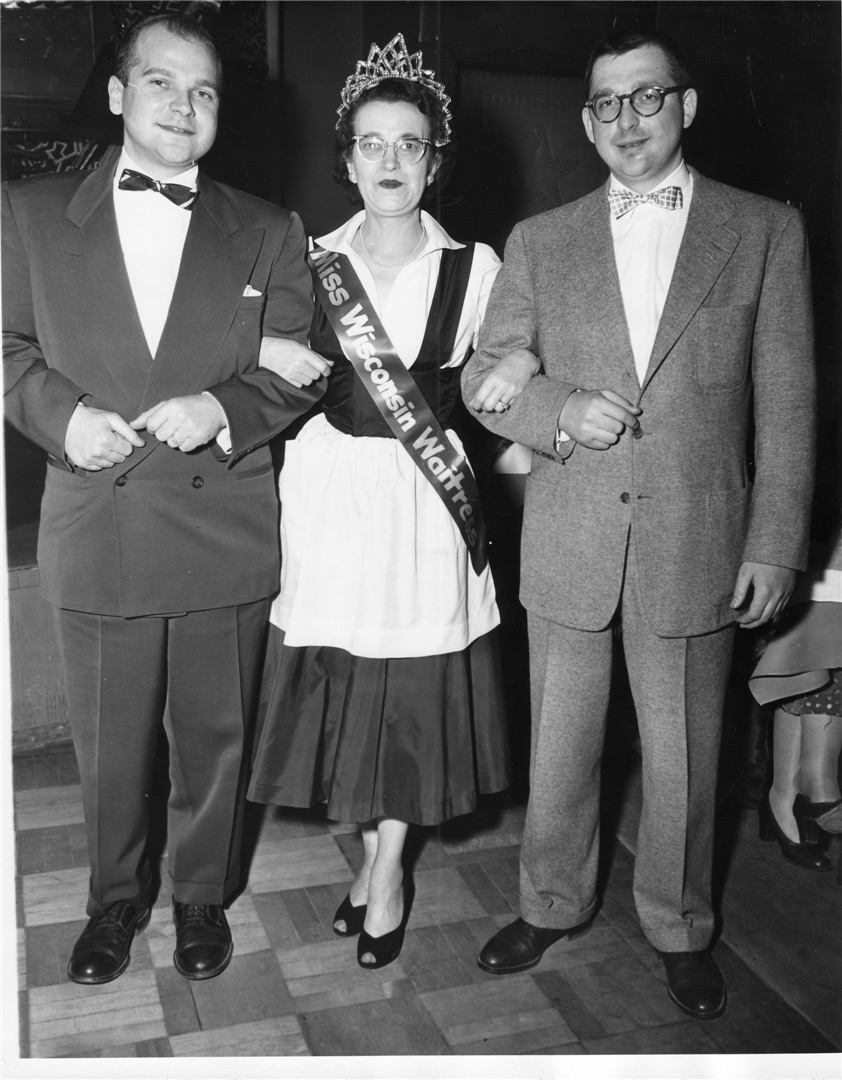
(PHOTO: Courtesy of Thomas Fehring)
In 1957, she retired and George and Jack (pictured above) took over the business and they purchased adjacent lots to create a buffer zone around the restaurant.
In 1965 the village agreed to a zoning change to allow Pandl’s to stay without the annual review.
The brothers hatched some remodeling plans, but ran into difficulty making some of them a reality, though others – like the log timbering outside and the enclosure of a porch to create another dining room – did happen.
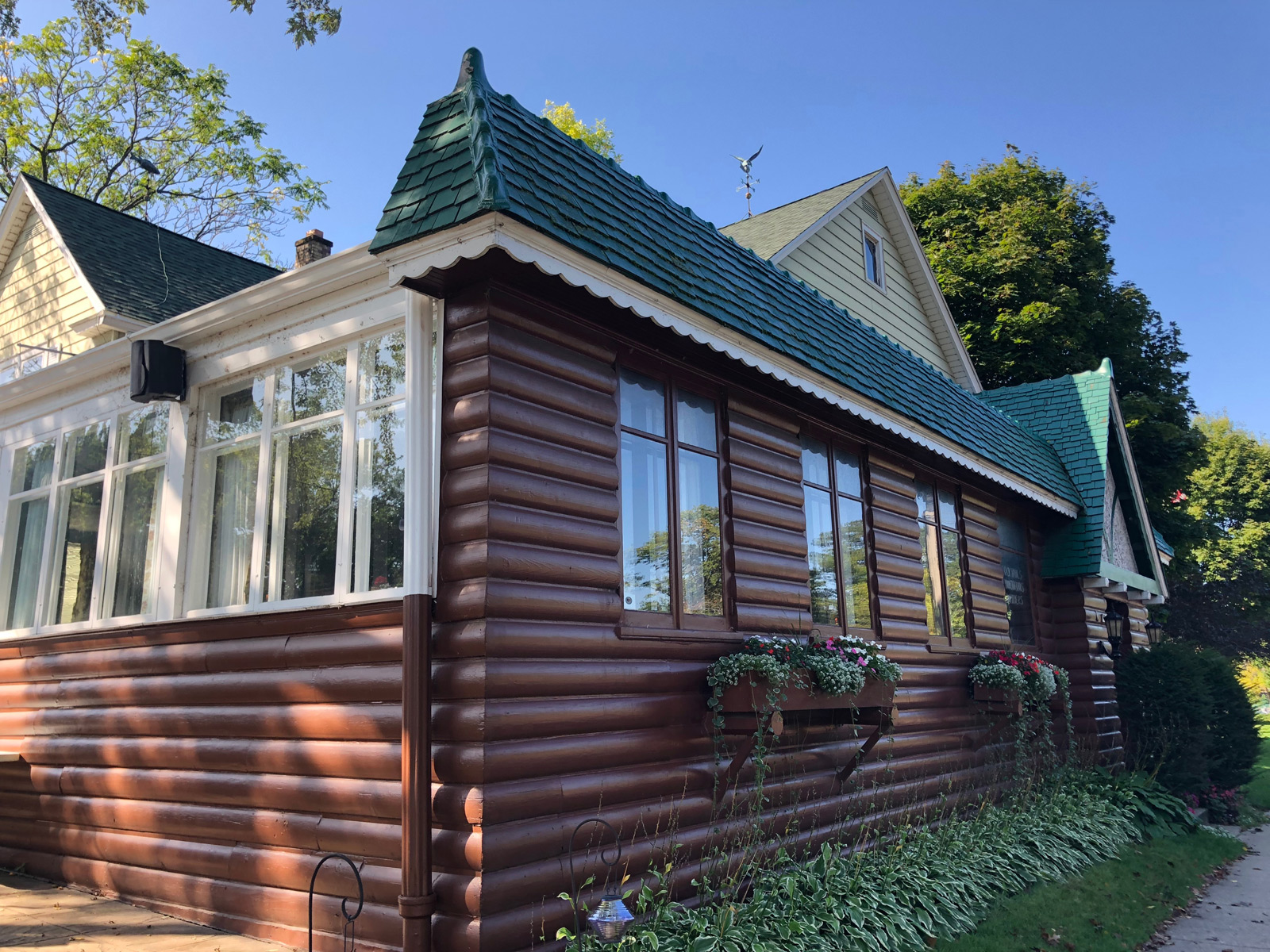
But it wasn’t easy. Even the Whitefish Bay Herald agreed, writing, "Pandls have always conducted a clean place but because they were strangled in the red-tape and non-conforming use – a sort of legal limbo – they were stymied in making even normal repairs and maintenance. ... Now the inn is really bursting at the seems with trade and would like to make improvements to keep apace ... present a more pleasing exterior to their neighbors, provide a more attractive entrance, a more suitable waiting area, better parking layout to keep patrons’ cars off the street, and better other facilities – including a private dining room for the holding of meetings. No one has yet suffered by the presence of the inn. Revitalized and with a new front, the inn can become of even greater service and pleasure for the residents of the Bay."
In 1967, Anna died from complications of a respiratory infection and George became disillusioned with the machinations at the village level and, at the same, wanted to run a place of his own.
That place had opened as Schuch’s (remember John Schuch from earlier in the story?) and after a devastating 1954 fire, became Art Kammen’s Polynesian themed Saxony South Seas on Brown Deer Road, which itself suffered a fire 1961.
Jim Kohler purchased it and put his name on the sign out front for a couple years before George Pandl bought it in 1968 and renamed it George Pandl’s. He’d operate it until selling it to his son Jimmy in 1987. It closed in 2009.
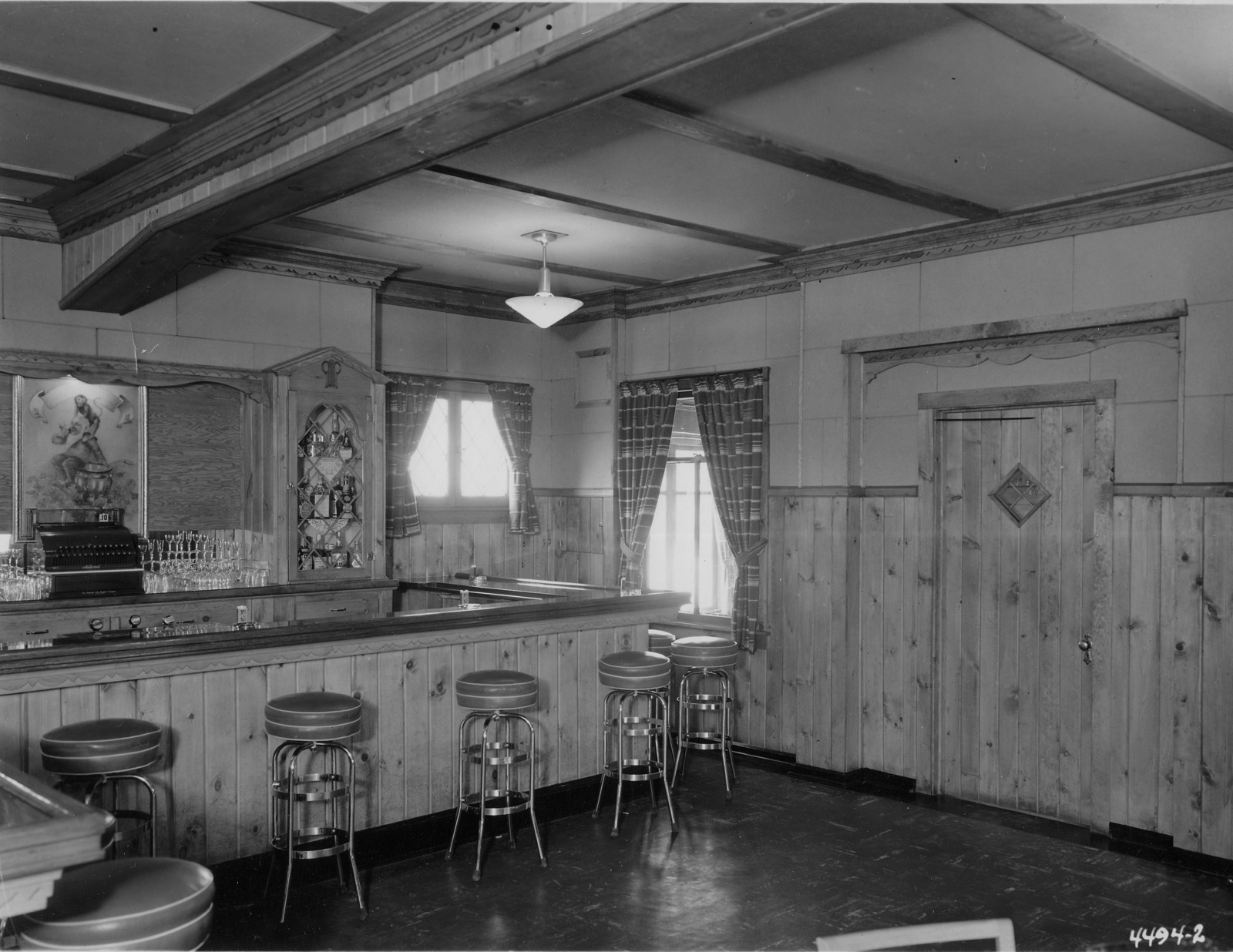
(PHOTO: Courtesy of Thomas Fehring)

Today and tomorrow
But Jack kept the Whitefish Bay Inn, continuing to grow it into the legendary place it now is, known for its great Friday fish fry, the bar remodeled into Old World splendor and that puffy, eggy, brown on the edges German pancake that, topped with maple syrup and confectioners sugar, is one of the best vintage dishes in town.

"In the restaurant business it doesn't really matter how long you've been in business, you still have the same issues of someone who's doing business for a year," says John Pandl, as we sit in the Heritage Room.
"You've got bills to pay, employees, taxes ... all that stuff. So it's not like you can just say well, you've got your reputation, you know. You've got an established clientele, but they pass away or move away and so you've got to kind of constantly figure out ways to keep your name in the spotlight."

The decades-old Pandl's recipe card box.
That explains the gorgeous patio. And the brank spankin’ new sign hanging nearby, created by real craftsmen.
"Hopefully we will keep it pretty much the same," says Ryan Pandl.
"We change a little bit," adds his dad. "But we only change a little."
Born in Brooklyn, N.Y., where he lived until he was 17, Bobby received his BA-Mass Communications from UWM in 1989 and has lived in Walker's Point, Bay View, Enderis Park, South Milwaukee and on the East Side.
He has published three non-fiction books in Italy – including one about an event in Milwaukee history, which was published in the U.S. in autumn 2010. Four more books, all about Milwaukee, have been published by The History Press. A fifth collects Urban Spelunking articles about breweries and maltsters.
With his most recent band, The Yell Leaders, Bobby released four LPs and had a songs featured in episodes of TV's "Party of Five" and "Dawson's Creek," and films in Japan, South America and the U.S. The Yell Leaders were named the best unsigned band in their region by VH-1 as part of its Rock Across America 1998 Tour. Most recently, the band contributed tracks to a UK vinyl/CD tribute to the Redskins and collaborated on a track with Italian novelist Enrico Remmert.
He's produced three installments of the "OMCD" series of local music compilations for OnMilwaukee.com and in 2007 produced a CD of Italian music and poetry.
In 2005, he was awarded the City of Asti's (Italy) Journalism Prize for his work focusing on that area. He has also won awards from the Milwaukee Press Club.
He has been heard on 88Nine Radio Milwaukee talking about his "Urban Spelunking" series of stories, in that station's most popular podcast.





